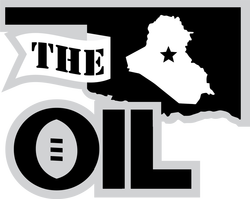|
This is the third installment in our ongoing oral history project. You can view the 2006 installment here, and the 2007 installment here.  In the summer of 2008, the 158 was once again notified it would deploy to Iraq. It had been rumored for months, and it was finally confirmed. Most of the league members at that point were still in the 158, and the future of the OIL was in doubt. But OIL commissioner Cliburn was determined to make it happen. CLIBURN: I was really surprised when we heard the 158 was deploying again. We'd all done the math when we were on the SECFOR mission and thought we'd be home at least a couple years before our number was called a third time (the first being the 2003 activation discussed in chapter one). TROVILLO: I remember you saying there was a chance you'd be going back overseas. CLIBURN: Yeah, I actually planned on it. I was shocked at the news, but I figured I'd going back and there's nothing I could do about it. DUFFY: I was shocked, too. But I knew I was non-deployable due to the condition I acquired while deployed in 2005-2006. I did mobilize with the unit as if I were going to get deployed again, but while we were at Camp Gruber I was officially DQ'd. BRUESCH: I planned on retiring from the Guard, so I always expected another deployment. So the timing didn't register with me as much. I just accepted it for what it was and got ready to deploy. MORGAN: I was still in the 158 at that point, but, after the SECFOR mission, I was put on a medical hold. They gave me a choice to be medical'ed out of the Guard or finish my term of service in a non-deployable position. I took the latter. So I think the shock of a second Iraq tour didn't register as much with me. LEAL: I had gotten out of the 158 in 2007 and then did two years in the 95th Army Reserves unit in Norman. So I wasn't going to be on that mission regardless. MORGAN: I didn't know you did the Reserves. LEAL: Yup. CLIBURN: Damn, you two were roommates in Iraq. Didn't you keep in touch afterwards? LEAL: We did. It just never came up. COBB: After the SECFOR mission, I'd moved back to Arkansas and transferred into the Arkansas Army National Guard. PYLE: And I had actually ETSd before the 2007 season, so I wasn't in the 158 either when they got word of another deployment. JESSEN: I don't remember when we found out we were heading back overseas. I wasn't upset though. I actually enjoyed my deployments and the lifelong friends I made through them. The hard part, of course, was leaving my wife and son for a year though. FINCH: I'd gotten out the previous November during the 2007 season. BALDWIN: I was on that 2008 mission, but I wasn't that surprised by the deployment. Nothing the Army does surprises me anymore. CLIBURN: I guess I shouldn't have been surprised either. What did surprise me was getting pulled out of the SRP line at Camp Gruber to go talk to the medical detachment. They said the medical questionnaire I'd filled out after returning in 2006 led them to believe I had PTSD or TBI. They said I shouldn't return to Iraq if I wasn't "ready." I was stunned. No one had ever discussed that medical questionnaire with me before that day. But, given the choice, I conceded that maybe I wasn't ready to go back. They took me off the mission immediately. I couldn't believe it, but I felt pretty damn guilty about it. I felt like I should be there with my guys. I went and talked to CPT Neely about it right away, and he said I shouldn't feel guilty. I'd done my duty in 2006, and they came to me suggesting I not go back; not the other way around. So I told my friends I wouldn't be going with them; that sucked. I was going to be Baldwin's squad and we'd grown pretty close. But I honestly didn't want to spend another year in Iraq. Like a Rolling StoneThe guys on the Iraq mission weren't the only ones away from Oklahoma at the start of the third OIL season though. Trovillo wasn't in Oklahoma when the 2008 season began either, but for different reasons. TROVILLO: I got out of the Army late in the 2007 season and moved back to Tennessee. So, by the time the 2008 season rolled around, I was getting settled into my new life. But I was glad to have that last link to my time in Oklahoma. CLIBURN: And we were glad to have you in the league. You finished fourth in your first season and always set your lineup. TROVILLO: I'll blame the fourth-place finish on dumb luck, and the fact that I didn't have a whole lot to do when I got back to Tennessee but set my lineup. CLIBURN: I thought you moved back for a job opportunity? TROVILLO: I did, but that didn't work out. Then, due to a series of unfortunate events, I was, for lack of a better term, homeless for the first six months that I was back. I jumped around from place to place, starting with my dad's couch, then my car, then one friend's couch to another while I got a job, saved up everything, and finally got an apartment. CLIBURN: Damn, man. I didn't even know all that was going on. At least you had a good team to look forward to each week. TROVILLO: Yeah, but that was because, the whole time, I would borrow friend's computers, go to the library, and do whatever it took to keep my line-up set. It was a little bit of solace in a tumultuous time. CLIBURN: And that's why you're the only non-158 guy still in the OIL. You fit in from day one and always remained involved. The Show Must Go OnThe guys considered tabling the OIL for that season, but they quickly discounted that idea. After all, the OIL was born in Baghdad when every member was in Iraq. This time at least half the league would be states-side. So the decision was made that the season would go on as scheduled. There would be no off-year. CLIBURN: The 2008 season was a scaled-back version of the monstrosity of 2007. For one, Josh Hastings elected to take a year off to truly learn fantasy football. None of the non-Army managers from 2007 were invited back as we pared it down. I wanted to get back to our roots. So, we added another 158 soldier (Mitchell Betchan), and the league was set at 12 teams. Of those 12, three (Jack Bruesch; Nathan Purdue; Mitchell Betchan) began the season mobilizing at North Fort Hood and finished it at Camp Ramadi, Iraq. And, although they weren't in the league that year, current OIL members Yancy Baldwin and Zachary Jessen were on the mission, too. The rest of the OIL that season had either left the 158 or didn't deploy due to a medical issue. Schmidt competed that year as I'm Not Going since he'd left the Guard. Then Pyle signed up and immediately announced he wasn't deploying either (while simultaneously upping the trash talk ante in July): JESSEN: We got to Fort Hood sometime in early August. It was miserable there. CLIBURN: Did you have internet access? JESSEN: There was an internet cafe available, but that was it. CLIBURN: So, no? JESSEN: Pretty much. CLIBURN: How did it compare to North Fort Lewis during the 2005 mobilization? JESSEN: Hood sucked. It was worse than Fort Lewis by far. There was no drinking at all, and the training sucked. We were always on down time, which made the mob drag on. At least when we were at Lewis we were constantly doing training. CLIBURN: I actually liked Fort Lewis in '05, but I was happy not to be on the 2008 mission. What was it like competing from Hood? JESSEN: Remember, I wasn't in the OIL in 2008. I don't think I was invited. CLIBURN: That's right. You were in the original league in 2006 but you declined an invite in 2007. I figured you weren't interested again in 2008 and didn't send you the invite. BRUESCH: I don't remember much about the run-up to the third OIL season. I was so busy getting ready to deploy. I just remember the draft occurring while we were at Fort Hood. Since a quarter of the league would be heading to Fort Hood in August before going off to Iraq again, the OIL held their earliest draft to date. It took place August 6, 2008 and was done entirely online. CLIBURN: I remember we originally had it scheduled for August 14, which is already pretty damn early. But the guys deploying again would be at Fort Hood in early August and who knew if they'd actually have internet access much after the real training started. So we rescheduled it for August 6, a date they told us they knew they could get to the internet cafe. The DraftCLIBURN: Man, seven of the guys chosen in the first round are no longer in the league. DUFFY: And five of the players drafted in the second. CLIBURN: You continued your trend of overvaluing Packers by drafting Ryan Grant fourth overall. DUFFY: I don't remember much about the 2008 season, other than it was the season before I got serious about fantasy football. I'm pretty sure I had at least four or five Packers on my team though. CLIBURN: You had four Packers plus Brett Favre during his Jets season. DUFFY: That's ironic because I hate Brett Favre now. It's funny how things change. Fortunately I win much more frequently now, but 2008 was just another train wreck on the way to better days. CLIBURN: Speaking of Packers, I remember thinking Bruesch's draft was horrible. First of all, I'm not a big proponent of drafting a QB in the first round. But Bruesch did that by drafting Tom Brady fresh off his 50-touchdown season of 2007. It's hard to argue with that. But what I really thought was stupid was wasting a 12th-round pick on a backup QB in Aaron Rodgers. I thought he could have used that pick on a lottery pick RB or a flex-quality WR, especially since he already had chosen a QB with his first pick. Team-by-Team DraftsThe UnforgivableCLIBURN: How the hell do you forget about the draft? PYLE: I vaguely remember missing it. The thing is, the draft causes a bit of a marital conflict every year. My wife's birthday is August 25th and the draft seems to fall between August 22nd and August 26th every year. I don't recall exactly what I was doing during the draft, but I assume I was doing something for my wife's birthday. CLIBURN: Actually, the draft was August 6 that year because it was one of the few times the guys at Fort Hood could get to a computer. Cobb sent me an email in July asking when exactly the draft was because I'd asked about moving it up. CLIBURN: I think that had a lot to do with it. The draft kept getting rescheduled because of the normal scheduling difficulties inherent in getting everyone on the same page and the added difficulty of a quarter of the league deploying. And, to be fair, the draft in 2008 was nothing like they are now. It wasn't an event we all met up for. It was just a random weeknight online. PYLE: Exactly. That makes sense. Usually I have that date circled for weeks. That's the reason I missed the draft: I probably got one email about it, marked the date and didn't open subsequent emails from you rescheduling. CLIBURN: Yeah, and that falls on me. Even with all the added difficulty the deployment added, I should have communicated better as the commissioner. You were the last person I'd have expected to forget the draft, so I definitely gave you shit for it. But you made up for it once the season started. PYLE: Yeah. I remember feeling like I was behind the 8-ball due to the auto-draft, so I was making add/drops and proposing trades like crazy. But it seemed like NOBODY was willing to listen to my trade proposals. Making matters worse, the guys on mission were out of pocket, so that further reduced my prospects of making trades. I guess frustration is what I remember most about the 2008 season. BRUESCH: Hey, it's not our fault we had such little access to the internet. I was glad Cliburn moved the draft for us. It wasn't perfect, but I got to draft at least most of my own team before the shoddy internet service at Fort Hood led to autodraft off and on for the last few rounds. Purdue and Betchan were also in the internet cafe trying to draft their teams and one of them never could get online. His whole team was autodrafted (I can't remember which one it was though). The internet was just really slow and spotty there. But we definitely tried. CLIBURN: We know that. And we'd never claim we somehow had it worse than you guys deploying. But it was frustrating to see a perfect trade scenario only to realize the other party was at Fort Hood and probably wouldn't check their email for another week. PYLE: Exactly, although there was a flurry of trades early. The SeasonNOTE: The OIL started this oral history project nine years into the league, so it's difficult to remember the week-to-week battles in the league. But we did our best. The Yahoo! archives show the weekly scores, but there's no way to see who was in whose lineup those weeks. *Cobb's 'Dogs of War' franchise competed as 'The Outlaws' in 2008. Finch's 'Hard Targets' franchise competed as the 'fuckwads.' Purdue ('F'd by da grn weenie') and Betchan ('patriots') are no longer in the OIL. Weeks 1-3With the 158 back in Iraq, Morgan getting married, Pyle forgetting about the draft, and a presidential election heating up, the season didn't have the same excitement going in. That is, until week one when a superstar was lost for the season. In the first game of the season, Chiefs defender Bernard Pollard hit Patriots QB Tom Brady low. Brady tore his ACL, and Bruesch lost his first-round pick. BRUESCH: I'm not sure when I heard Brady was out, but it devastating. CLIBURN: I felt really bad for you, man. You were already competing from Iraq and now your top pick was out for the season. Plus, I still felt a little guilty that I wasn't there with you. We made a good team that last half of the 2006 mission (T-Bird 85-Alpha!) BRUESCH: That just seemed like the perfect start to what was going to be a crappy season. I was already at a handicap because I had less internet access than the guys back home, and I was really counting on Brady.  CLIBURN: But that's when I thought maybe it wasn't such a bad idea you drafted two QBs. Even then, no one knew exactly how good an idea it was until Aaron Rodgers started playing like the Aaron Rodgers we think of today. BRUESCH: He truly was my team's savior that year. DUFFY: I knew Bruesch would be okay. I'm a lifelong Packers fan, so I'd been following all the training camp and preseason news about Rodgers. I knew he was going to do really well. BRUESCH: I don't remember what I thought about him at the time. I just knew I had to suck it up and hope for the best from him. CLIBURN: The defending champion, Morgan, had what looked like a good draft. But his 2007 championship team didn't make a single add/drop all season, and he wasn't nearly as lucky in 2008. MORGAN: My luck definitely ran out. LEAL: It was bound to at some point. I still can't believe you won it the year before. CLIBURN: 2008 was perhaps my best draft ever. I chose rookie RB Matt Forté in the 6th round, Jay Cutler in the 12th round, Pierre Thomas in the 14th round, and Eagles rookie DeSean Jackson in the 18th (!) round. PYLE: You did really well that year. DeSean Jackson was a steal and Jay Cutler in Denver gave you some flexibility with Brees. Wasn't that your first playoff season? CLIBURN: It was. I had winning seasons in both 2006 and 2007, but 2008 was my breakout year. I had that great draft and made some good trades down the stretch. CLIBURN: As you can tell, I was really proud of my draft, especially my rookie class of Matt Forté and DeSean Jackson. DUFFY: You should have been. Forté has been a fixture in the first round ever since that season. He was a steal in the sixth. Weeks 4-6After the first quarter of the season, only one team was undefeated: the Arrogant Americans. And only one team was winless: Purdue's F'd by the Green Weenie. Everyone else was a variation of 2-1 or 1-2, and it was unclear who would separate themselves as the season progressed. CLIBURN: Just a few weeks into the season, I sensed a problem. Yahoo!'s default scoring settings didn't use fractional scoring. So, if your runningback ran for 89 yards, you get eight points. Those extra nine yards don't count. In fractional scoring, you'd get 8.9 points. CLIBURN: I only got two responses to that suggestion: Cobb's and one from Pyle, who wasn't very concerned with our scoring settings. DUFFY: But it was too late to change scoring settings for this season. So we just had to go forward hoping it never became an issue. CLIBURN: 2008 was also the year of our first trade crisis. Pyle was so vocal about it that I unilaterally canceled the trade. In hindsight, it doesn't look that bad. And I didn't think it was that lopsided then either. But it was important to me that everything look on the up and up. Here's the trade in question: ControversyAnd here's Pyle's blistering email regarding that trade: PYLE: The only part of the "controversy" that I recall, is that I was (and still am) a sore loser. I was frustrated because the trade offers I made got shot down without a reply or response or they just went dormant. My team was like a yo-yo or slinky, one week they were up, the next week they were down. I truly don't remember typing "the rant." After looking back at the actual trade, I can only assume that Brandon Marshall and Jonathan Stewart were tearing it up that year and Cliburn was potentially vying for my playoff spot. I looks as though the trade was fairly early in the season, but I really don't recall was caused me to get so hot. CLIBURN: So, as commissioner, I canceled the trade and ended up trading Brees to Cobb for essentially Willie Parker and Jerricho Cotchery. COBB: That controversy worked out for me, didn't it? CLIBURN: Yeah. I remember talking to Duffy about it at drill but, mostly, at work. It was just more important for me to have everything look on the up and up than go through with that trade with Morgan. DUFFY: I remember finding out about a lot of league drama that year not through the website or the DBF show, or any of that . . . they didn't exist yet. 2008 was the year Cliburn and I started talking TONS of fantasy football at work, and that's how I learned about all the drama and intrigue behind the scenes. CLIBURN: And, by extension, it was when our rivalry began. It was the first year we really bragged about OIL victories at work. DUFFY: It's interesting looking back at the early days of our rivalry. We had so much in common both in and out of uniform. There was always this mutual respect that prevented us from being too far out of line after we faced off. Now that I think of it, those first couple seasons went by with little mention of our game . . . which is good because I made plenty of rookie mistakes (even after a bad draft). We talked every week about fantasy football. However, when we faced off in the early days, it was like a bye week. It was like it never happened. We barely acknowledged it out of respect, if that makes sense. But, simultaneously, I wanted to beat him. I had to beat him. I had something to prove I guess. CLIBURN: And part of it may have been we saw each other every morning, but it was for short periods of time. Duffy had a million things to worry about before my shift ended. I was loading 1,000 packages in three or four UPS cars, so I was busy too. What little time we had seemed better used talking about the big picture than talking trash about a single matchup. DUFFY: That's true, too. Plus, we knew we'd see each other at drill each month anyway. There was time for trash talk there. UPS was an environment that regularly manufactured stress. Cliburn and I always seemed to mutually cherish a five minute football conversation as it was a way to "stop the bleeding" every morning. You know, I'm not really sure what we talked about during the off season. I can't say I remember talking about anything else unless it was work related. PYLE: It is pretty clear after rehashing some of those posts that I composed, that I apparently had a little bit going on. My marriage was on the brink of crumbling (thankfully, it didn't). I wasn't being a very good father. My temper was out of control. CLIBURN: Jesus, man. I didn't realize you had all that going on, but I guess I should have suspected it. It hadn't been that long since you'd returned from the SECFOR mission, and the vast majority of married guys on that mission got divorced. PYLE: Turned out, I was suffering from some PTSD. Even though I didn't realize it at the time, I was going through quite a bit. CLIBURN: You know, I went a long time after our 2006 deployment before seeing any sort of counselor because I thought it made me weak. Then, year after year, I learn more and more guys I respect were going through the same shit. They went to counseling, too. PYLE: I did, but I think I took out a lot of anger on loved ones and the league. That clouded my judgment regarding any trades that I felt were unfar. But I know I wasn't the only one. CLIBURN: No, you weren't. At the time, a few guys were pissed because it seemed like I was helping some guys over others (like the ones deploying with little internet access over the ones with ample opportunity to set their lineups). But filling bye-week vacancies is now the norm. I'd like to think, over the course of almost a decade, I've earned the trust of the league. After re-reading how I responded to Pyle in 2008, I'm pleasantly surprised to see consistency. That's the same answer I'd give today. PYLE: I'm pretty sure Purdue was ahead of me in the standings at the time, which led me to be upset about you adjusting his roster. I didn't see you as a threat (since you had never made the playoffs up to that point), and I wanted Purdue to lose. I completely agree with your call now. Without a doubt, you made the correct call. CLIBURN: Thanks. Being a commish was a learning process, but I wanted to ensure the league was as competitive as possible. In hindsight, Purdue had started out 0-3, and I didn't want his being deployed cause him to be 0-4. Either way, he had a good team and no one wanted it to "wake up." PYLE: I understand completely now. As the commissioner of another league, I hate to see empty positions on a roster. You were also right about the motivation being to make it fair for the whole league, not just the individual team involved in a particular matchup. DUFFY: This was the first of many commish moves that conjured controversy or anger conjured. Generally, only the people that had something to lose had a problem with it (sort of like taxes). I remember this thing vividly because I think the entire league simultaneously foamed at the mouth. Purdue had somehow turned into the mast hated team/manager in the league, and his QB conundrum was celebrated. That might be some kind of defining moment for the league. It got a little more competitive over time and Purdue-initiated events like that seemed to be the bedrock for rivalry, hate week, and things like that. Poor bastard . . . he probably had no idea he was such a source of controversy. CLIBURN: Well, come to think of it, maybe he did. He never answered any communications after the 2008 season and never returned to the OIL. Maybe we were the problem. Jesus, I never thought of that. DUFFY: Neither did I until now. It makes sense though. PYLE: Purdue was my driver for the last half of our 2006 deployment. The thing I remember most about him was he wasn't always the most organized individual. Cool dude to have a conversation with, but my goodness he was unorganized! He would sleep in his uniform in order to gain an additional 15 minutes of sleep each day, and it showed. CLIBURN: Ha! I never knew him that well until later during the mission. I guess that had a lot to do with how much shit you gave him in the OIL. PYLE: Yeah. But, that said, I didn't perceive him as a threat when the 2008 season began. However, I was wrong. His team was good and his schedule was even better (read: easier). My thought when his team collapsed like that was, "FINALLY!" Then our commissioner, being the upstanding commissioner he is, did what was arguably "the right thing," much to my dismay. CLIBURN: I didn't know you two were in the same truck in Iraq. PYLE: Yeah. That's why I talked so much trash to him in the league. We had six months of that in Iraq. CLIBURN: Purdue did have a good team that year though. So, I understand why the league threatened by him. Fortunately for the rest of us, his QBs were horrible and kept getting injured all season. I helped as much as I could within the confines of fairness, but I drew the line at making changes after the games started. That led to maybe the first zero-point effort from someone's QB position in the OIL. Bad Quarterback Luck Continues CLIBURN: I remember posting this. Schaub was a last-minute scratch with the flu or something, and Purdue couldn't replace him with anyone because the rosters had already locked. PYLE: That was an extreme case, but it seems like every season there is a similar situation. It usually happens when a manager has two players: who plays at noon on Sunday and another who plays Monday night. It's nearly impossible to make the correct call. I truly hate when it involves a Belichick-coached player because he is the worst when it comes to reporting player availability. CLIBURN: Yeah, and Purdue was at a further disadvantage because he was in Ramadi. Bruesch, how often did you guys get to check your lineup? BRUESCH: Not that much, but enough for him to have picked up a QB or two at some point. Weeks 7-10As the trade deadline neared, Pyle became frustrated with the lack of responses to his trade proposals. He made it known, and he had a point: only three managers were in Iraq that season. The rest of us should have been available to discuss trades. PYLE: That was just so frustrating because I was trying to bolster my team for a championship run, and no one would respond to my proposals. Not even a "thanks, but no thanks." It's gotten better now, but there are still guys who, instead of rejecting or counteroffering a trade proposal, will just let it sit there in purgatory with no discussion. CLIBURN: Fortunately, your old buddy Schmidt had your back. Weeks 11-13Four teams traded players at the trade deadline as the regular season hit the home stretch: Cliburn, Pyle, Leal, and Morgan. With one week left in the regular season, the final playoff spot was still up for grabs. It would come down to week 13. Then, in the final week of the season, Cobb's Dogs of War franchise (competing then as The Outlaws) jumped from 10th place to sixth and Pyle and Cliburn couldn't believe it. CLIBURN: It was an amazing comeback. After week 11, Cobb stood at 4-7. He was guaranteed a losing record with two tough games still to go. But he pulled those games out and finished at 6-7. COBB: You can't ever count me out! I actually don't remember much about my comeback, but I'm sure I was ecstatic to make the playoffs after such a bad outlook with just a couple games left. Cobb's 2008 ScheduleCLIBURN: Comeback notwithstanding, I was pissed that a team with a losing record made the playoffs. PYLE: I agree. No one should make the playoffs with a losing record. CLIBURN: I agree. Sadly, it happens from time to time. Cobb's silence said it all. He knew he was in the wrong. But at least we both made the playoffs, too. I'd have been more upset if I'd missed the playoffs for a third straight year while he made it at 6-7. COBB: Teams with losing records make the playoffs a lot in the NFC, where you could argue they have weak divisions or parity, but I make no apologies. A set number of teams make the playoffs, and we qualified without foul play. CLIBURN: That's true, but it doesn't make it right. What really sucks is that last playoff spot would have been Finch's had he not tied Morgan earlier in the year. He finished a half game behind Cobb and had more points. FINCH: I don't think I even realized that at the time. Damn. CLIBURN: Yeah. You got hosed. Unfortunately, that wouldn't be the only controversial tie that season. FINCH: No, but it was still costly for me. CLIBURN: I finished the regular season 10-3 and earned the number one seed. I had Drew Brees and Jay Cutler, so I traded Brees to upgrade the rest of my team. CLIBURN: I had to lock eliminated teams as we headed towards the playoffs because Finch was dropping good players, benefiting those with a high waiver priority. I posted about it, Finch called us girls, and then Pyle reminded us that Finch did the same thing in 2006. PYLE: I just wanted to point out that he had a history of doing that. That season was very frustrating because I would send about three or four trade offers each week and I never got a reply, much less a counter offer (much like current seasons . . . lol). When the playoffs began, only one team was a previous champion. Pyle's Lucky Enuf was seeking its second OIL Bowl in three seasons. The PlayoffsFINCH: I was just trying to make things interesting and you guys cried like a bunch of girls. CLIBURN: To his credit, Finch hasn't made that move since then. Of course, that also coincides with him being more of a contender himself each year. DUFFY: Good, because that is one of the 10 Commandments of fantasy football: thou shalt not dump thy players. It artificially changes the whole competitive balance of the league. QuarterfinalsCLIBURN: But Cutler cooled, and I fell short. I had the number one seed in the playoffs but lost in the semifinals to Pyle, who'd just knocked Leal's Norman Nobodies out in the first round. PYLE: I loved ending your "Cinderella" season, Brick. CLIBURN: I know you did. Meanwhile, Purdue rained on Cobb's comeback parade before losing to fellow Ramadi resident Bruesch in the semifinals. That set up the OIL Bowl between Pyle and Bruesch. SemifinalsThe OIL BowlWith the OIL Bowl pitting the number four seed (Pyle's Lucky Enuf) against the two seed (Bruesch's SoonerJack), all eyes were on week 16. #4 Lucky Enuf vs. #2 SoonerJack |
January 2024
All
|
The OklahomIraqis League
|
|


































































































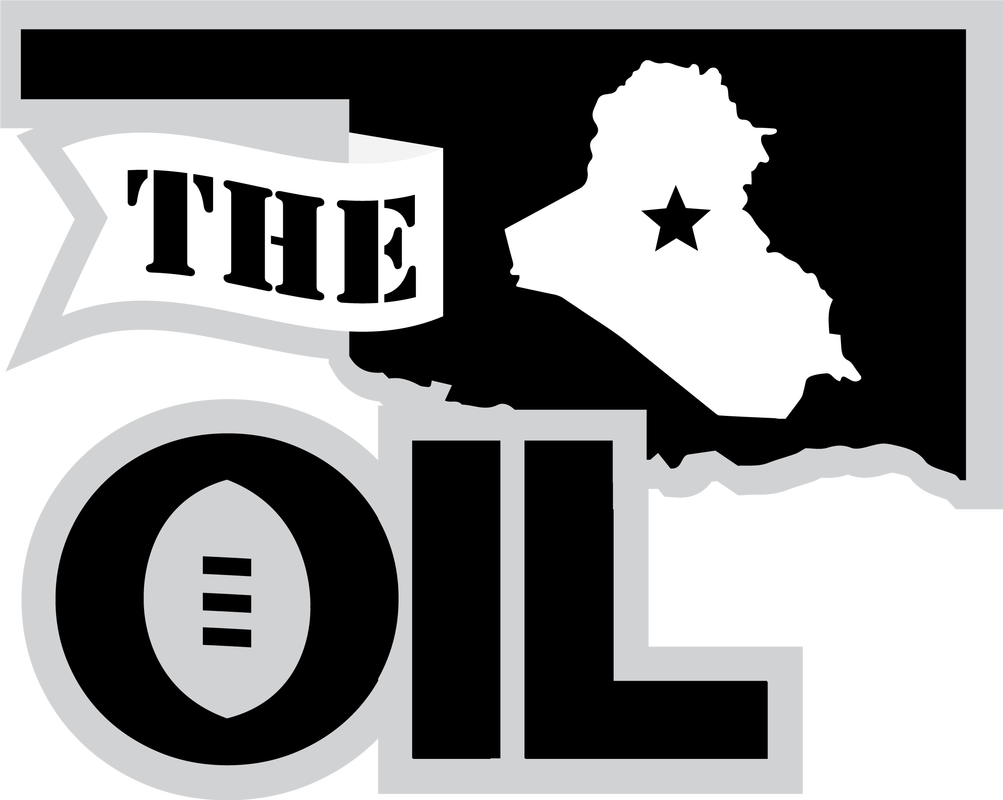





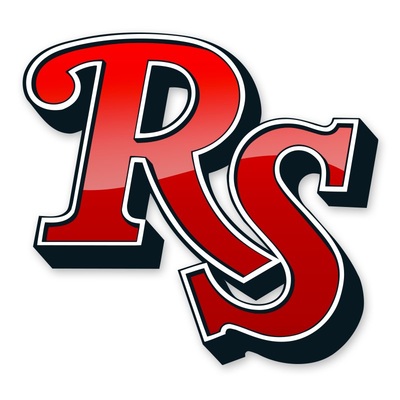




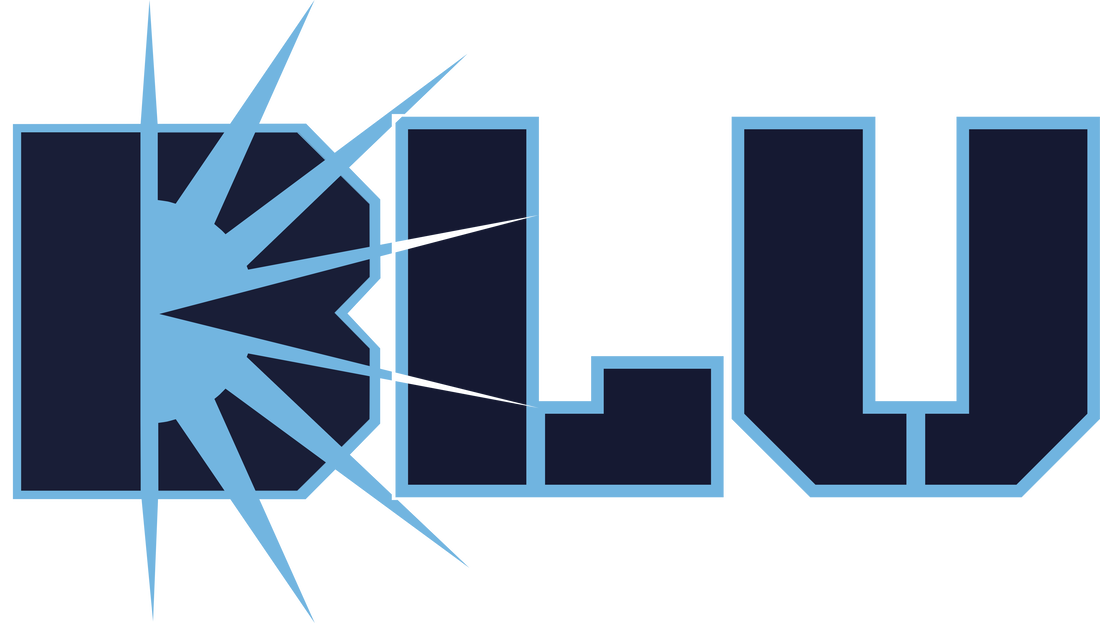

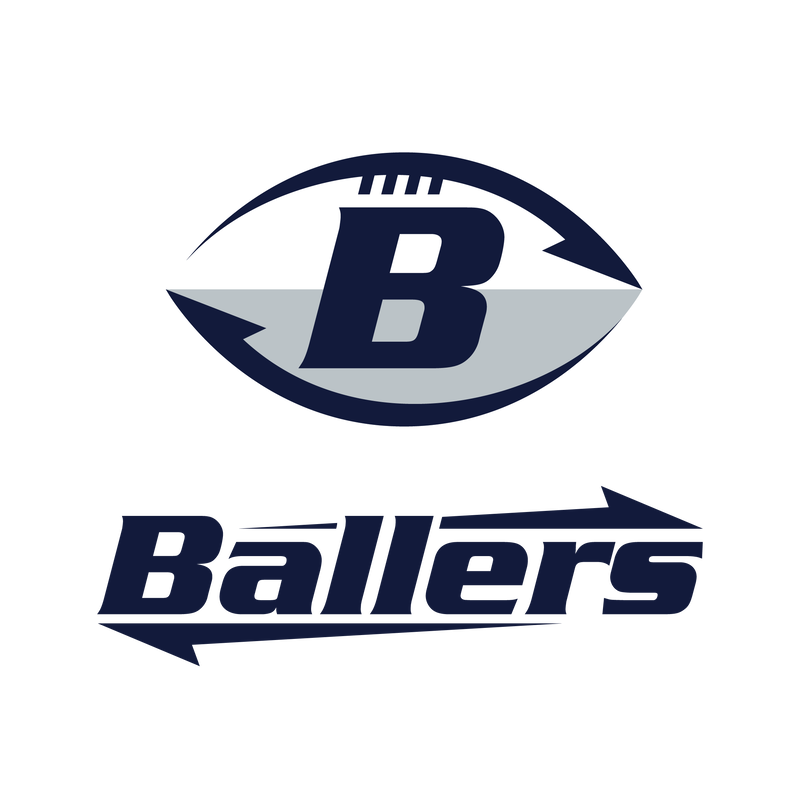
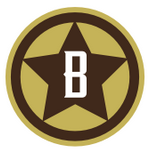
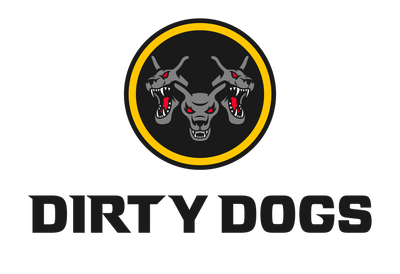
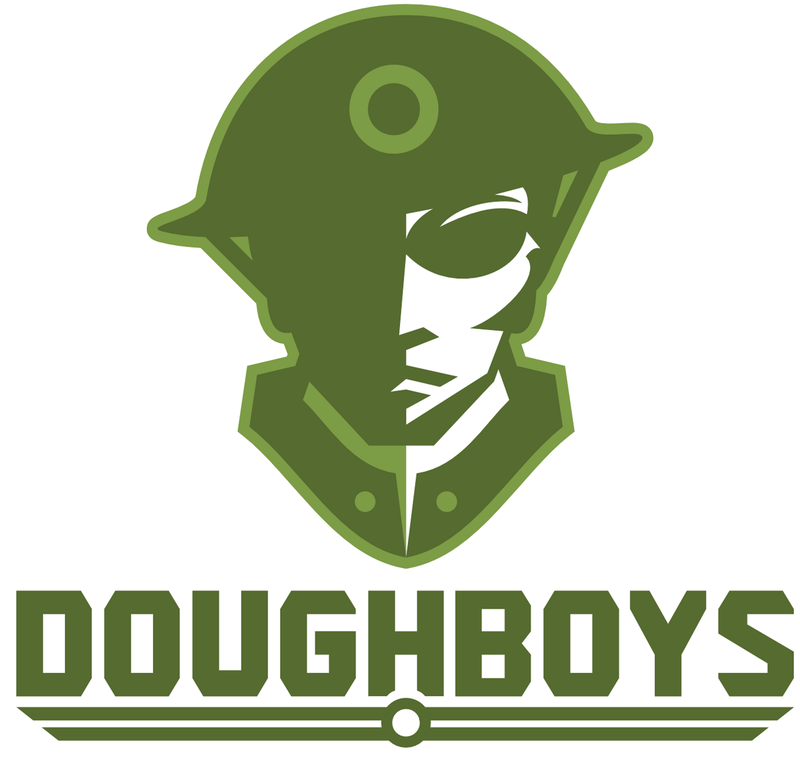
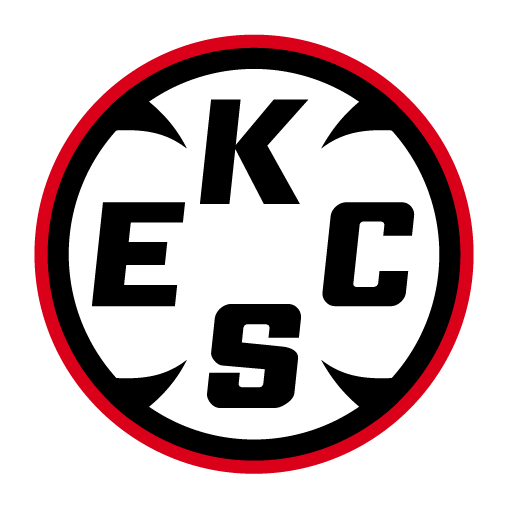
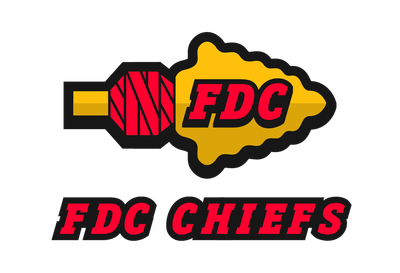
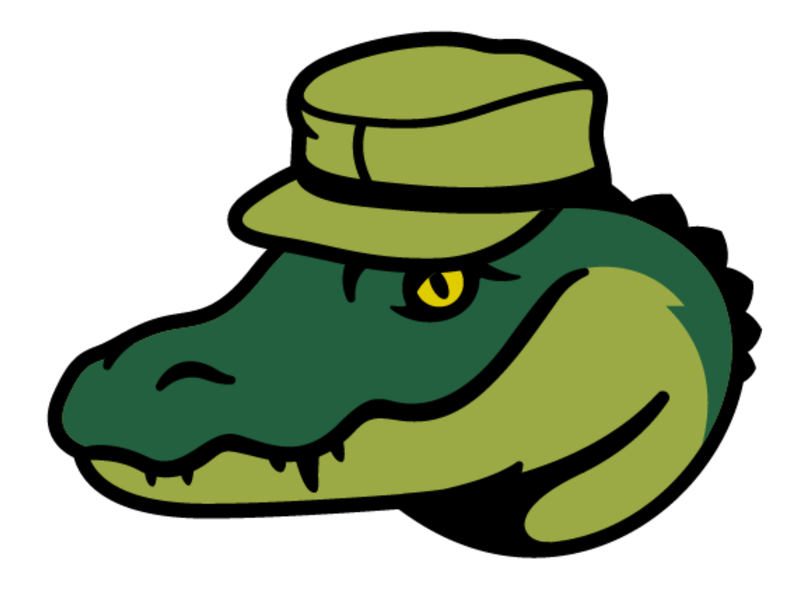
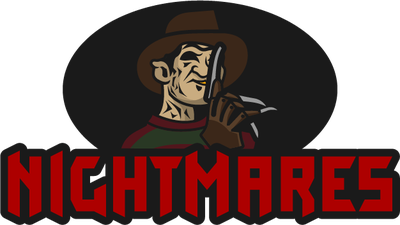
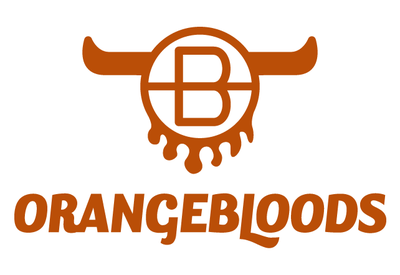
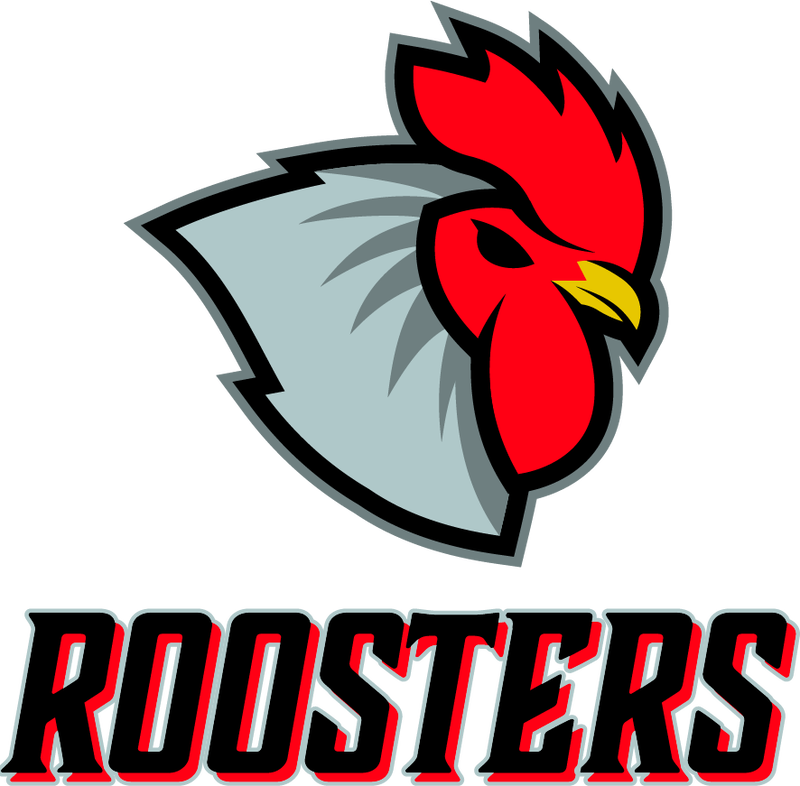
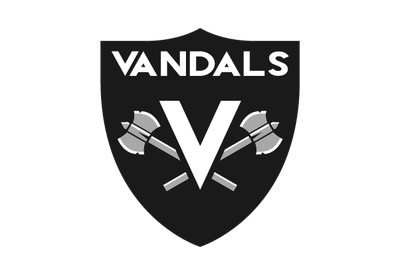
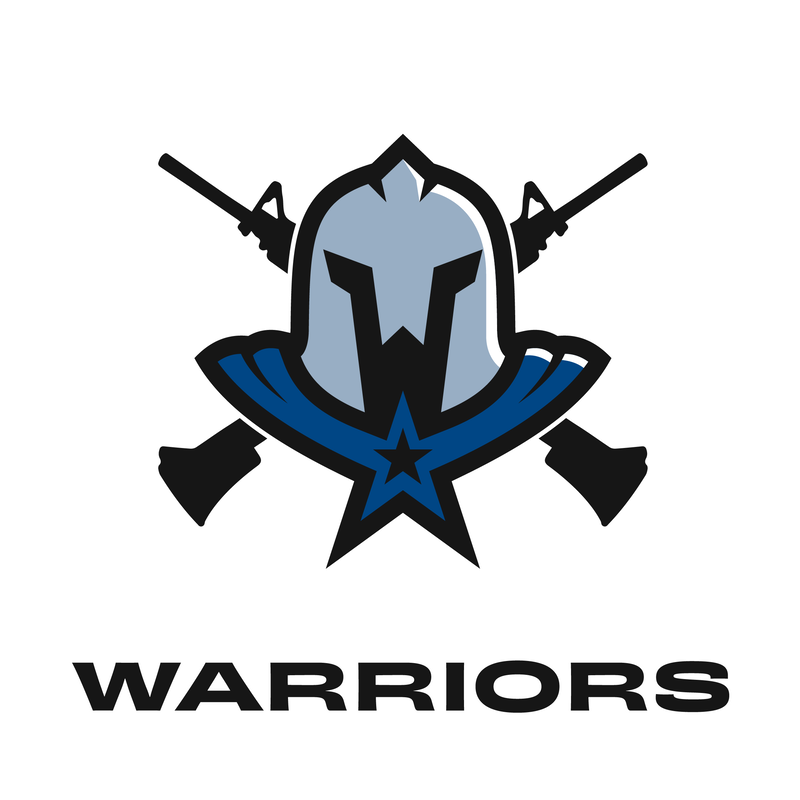
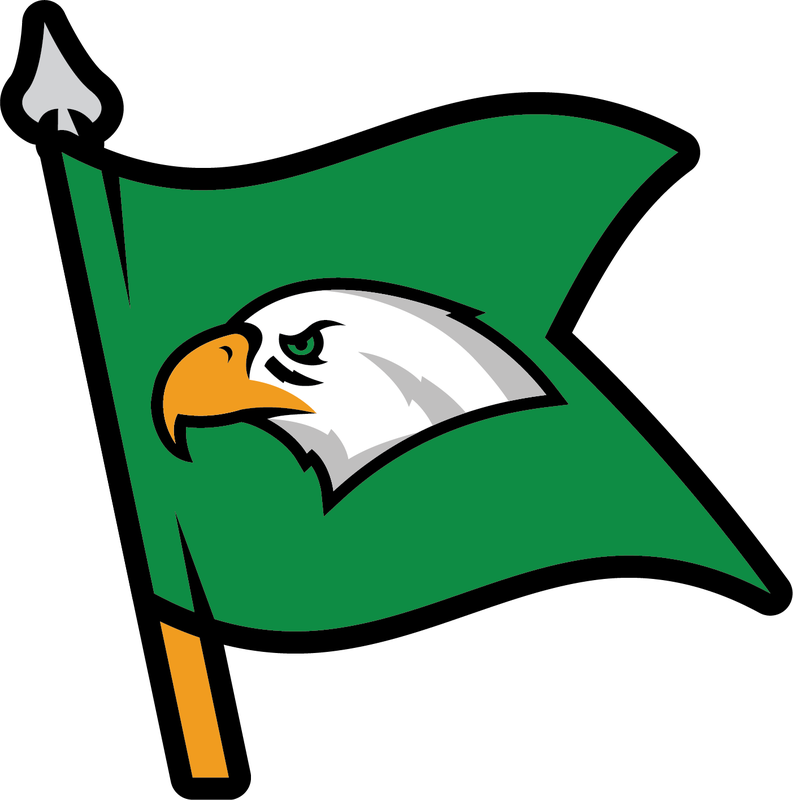
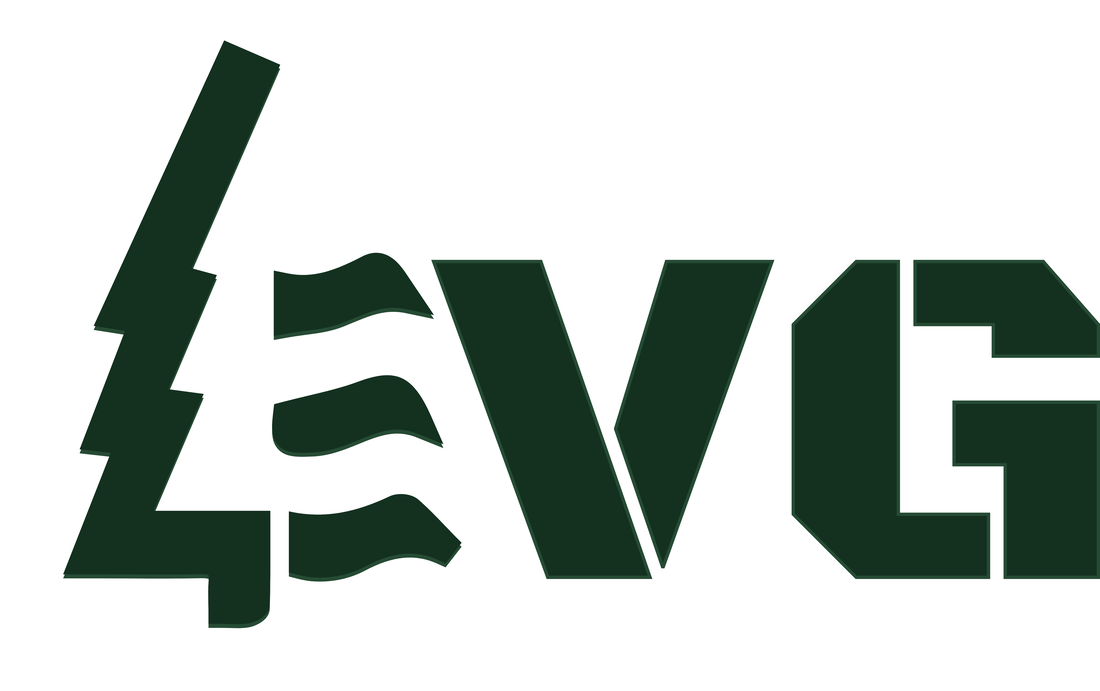

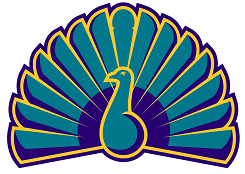
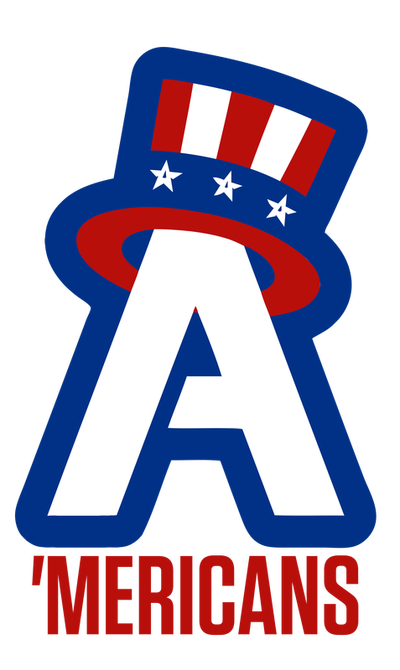
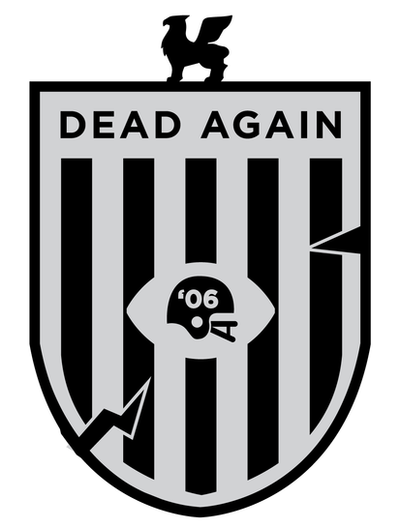
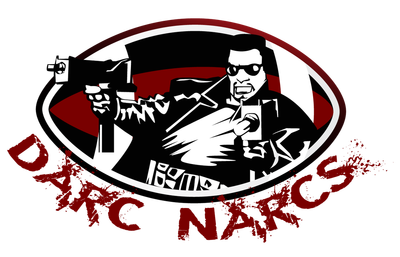
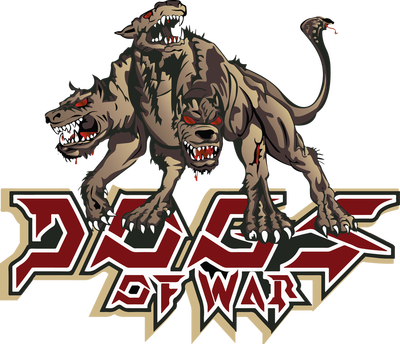
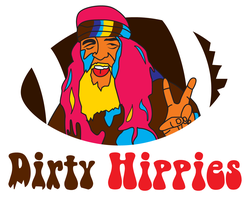
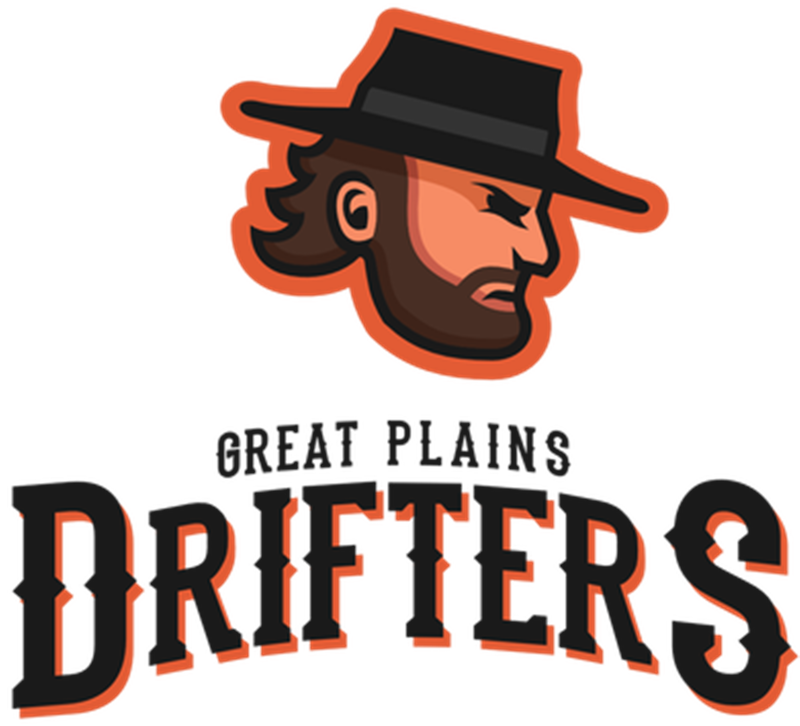
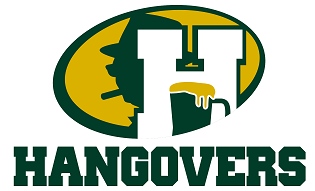
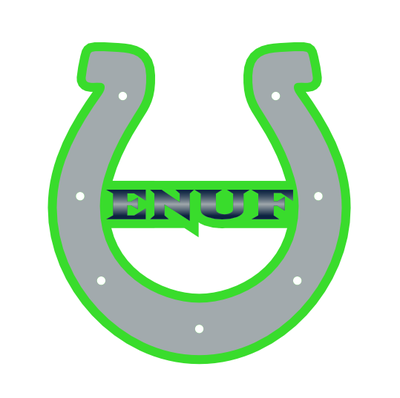
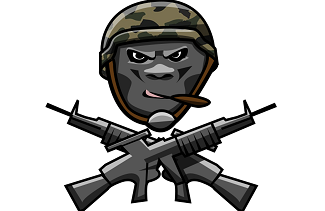
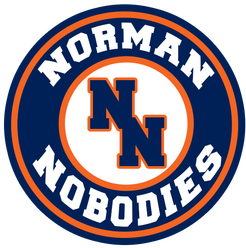
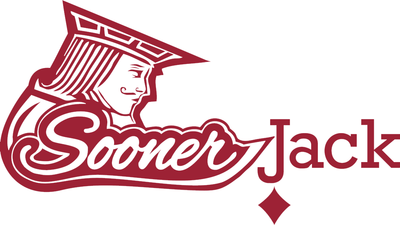
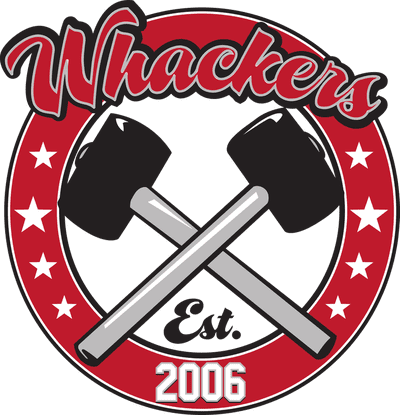
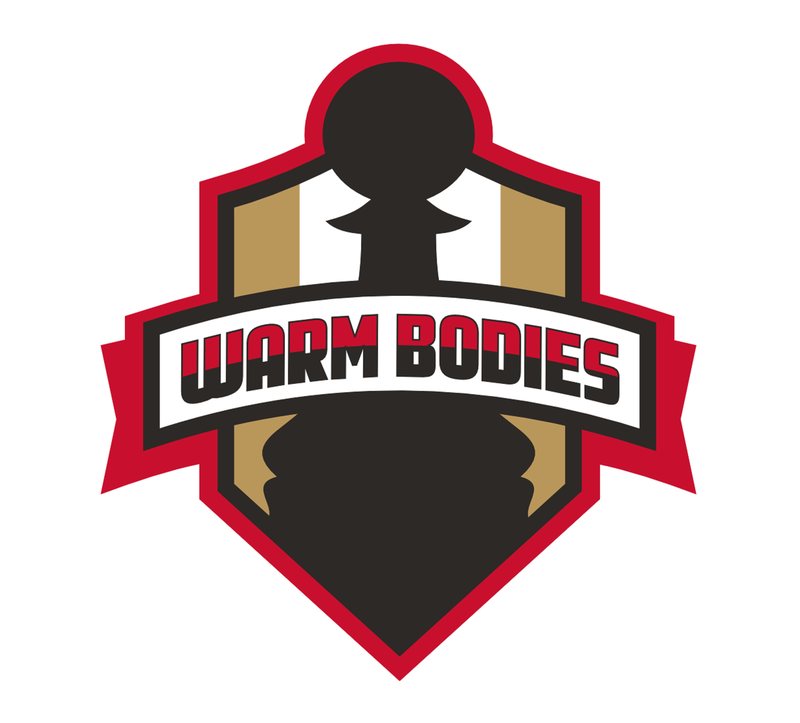


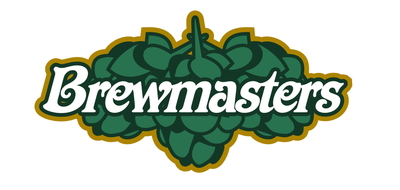
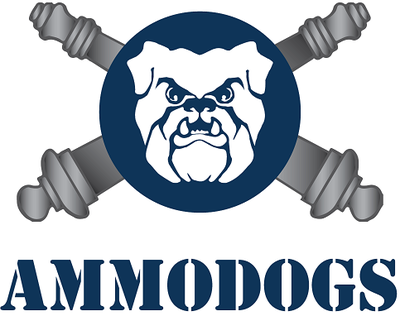
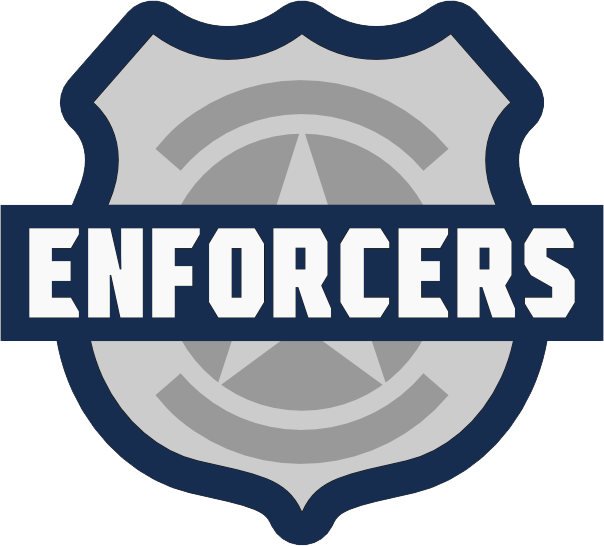
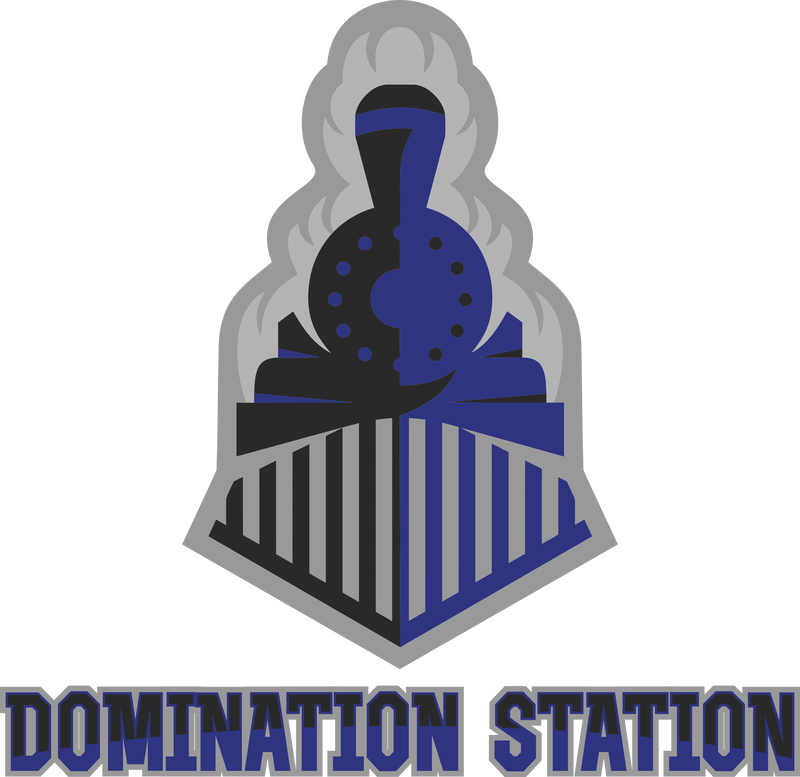
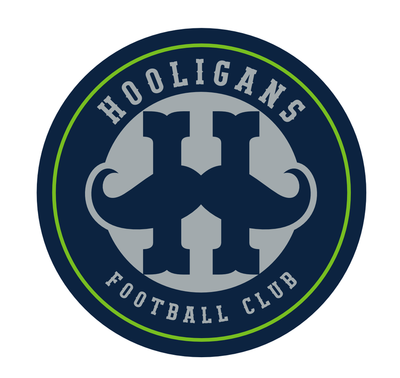
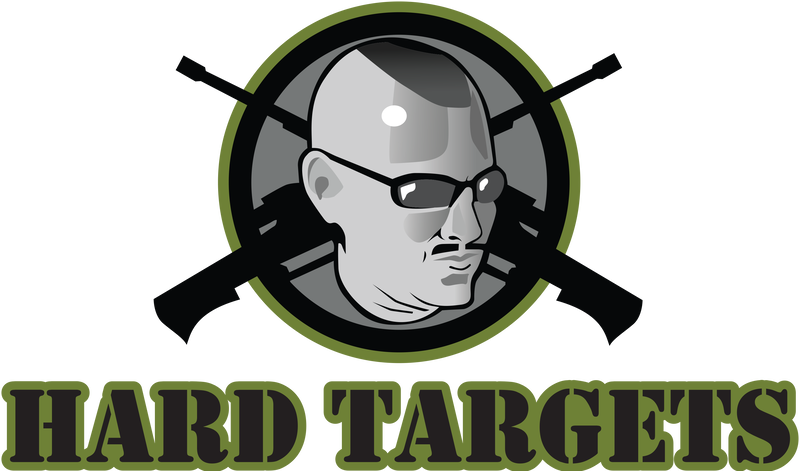
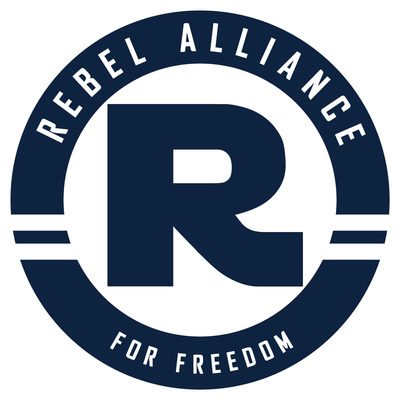

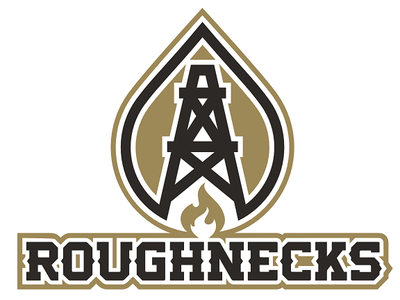
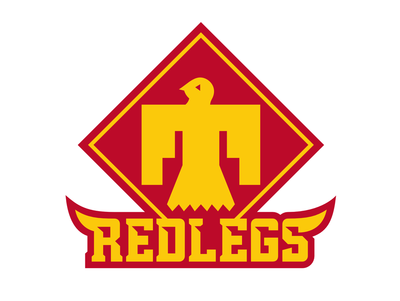
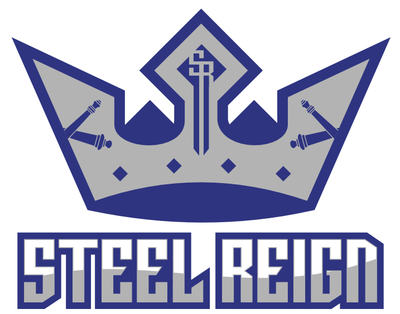

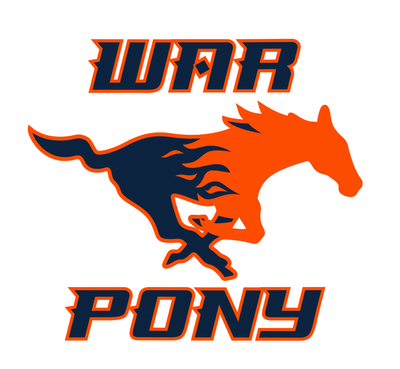


 RSS Feed
RSS Feed
